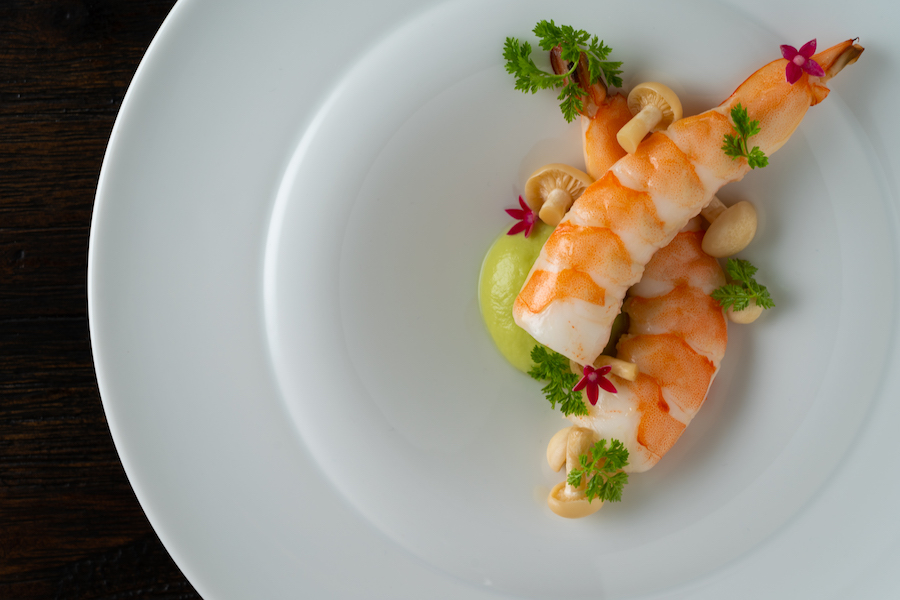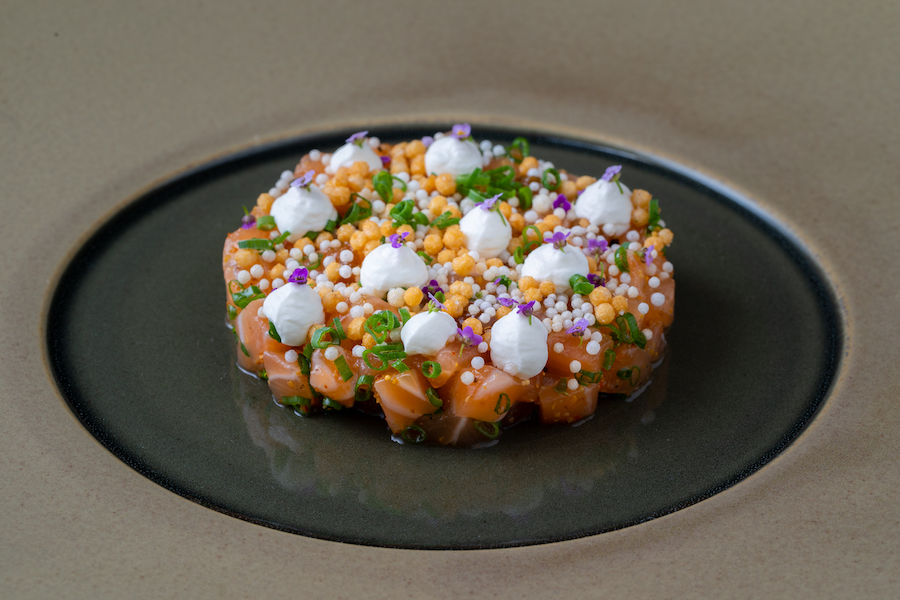Chef Dave Park has experienced something of a restaurant fairytale. After opening a small Korean stall in the food court of a Westmont mall in late 2015, he and his business partner (and now-fiancée) Jennifer Tran unexpectedly became superstars. Hanbun got rave reviews and started hosting pop-up tasting menu dinners. Now, the pair is readying for their next chapter, as they count down to opening day of their very first standalone restaurant, Jeong (1460 W. Chicago Ave., Noble Square).
Park was born in Korea but grew up in the U.S., and his cuisine represents a mix of his life experiences. “My heart is in America, but my soul is Korean,” says the chef, who knew that he wanted to work in kitchens since becoming fascinated with the Food Network as a kid.
Park met Tran in culinary school, moved with her to Chicago, and did stints at Takashi, the Aviary, and Storefront Company before opening Hanbun. Unfortunately, the stall closed in early 2018, largely due to maintenance issues in the mall. But soon after, Park, hoping to start something new, received a tip from Chef Noah Sandoval of Oriole that the space formerly home to Green Zebra in Noble Square was available.
That spot has since transformed into Jeong, a 40-seat restaurant that will offer both à la carte options and a seven-course tasting menu when it opens in early March. Park has created a menu that includes ingredients and flavors that may be new to some diners, while attempting to elevate traditional Korean dishes into the arena of fine dining.
“Korean food tends to be very intense and robust and in-your-face, but I want to take those flavors and make them more delicate,” says Park. Jeong will join Parachute, Passerotto, and S.K.Y. as part of the growing trend of upscale Korean-influenced restaurants in Chicago.

Some of Park’s dishes are influenced by his childhood favorites. Take tteok-bokki, a simple rice cake made with rice flour, salt, and water. “I grew up with this dish, and I still crave it,” says Park. “It’s my biggest comfort food.” Jeong’s version is roasted with schmaltz (chicken fat) until it puffs up. It’s then glazed with chili sauce and served with marinated quail eggs, charred cabbage, and pickled mustard seed.
Another favorite is miyukguk, a savory seaweed soup that's traditionally served on birthdays or to pregnant women; Park’s grandma made it for him at every birthday. At Jeong, it’s used as the base for a cod dish, served with poached mussels, rendered bacon, and chili oil – sort of like Park’s take on an East Coast chowder.
My prediction for the unlikely star of the menu is juk, or congee. “Every culture has some sort of juk,” says Park. “There’s oatmeal, porridge, all over the world.” Made with pearl barley, his version will be similar to risotto, cooked in a mushroom dashi broth that's seasoned with parmesan rinds and topped with pickled hon shimeji mushrooms. A hit of uni (sea urchin) is folded in right before service. “It’s almost like folding in butter or cream,” says Park.
The tasting menu ($87) starts with an intriguing combination of king crab, tofu made in-house, maesil (Korean plum), and a chili-braised fern — an ingredient often served in Korean monasteries. “I cooked it with dashi and soy and chilies and braise it down so it’s nice and soft. It’s very earthy, very savory,” says Park.
While the chef knows that many of these ingredients might require a little bit of explaining to patrons who aren’t familiar with them, he’s trained his staff well. “I hope they get enjoyment out of showing people that Korean food isn’t just Korean barbeque," he says.



